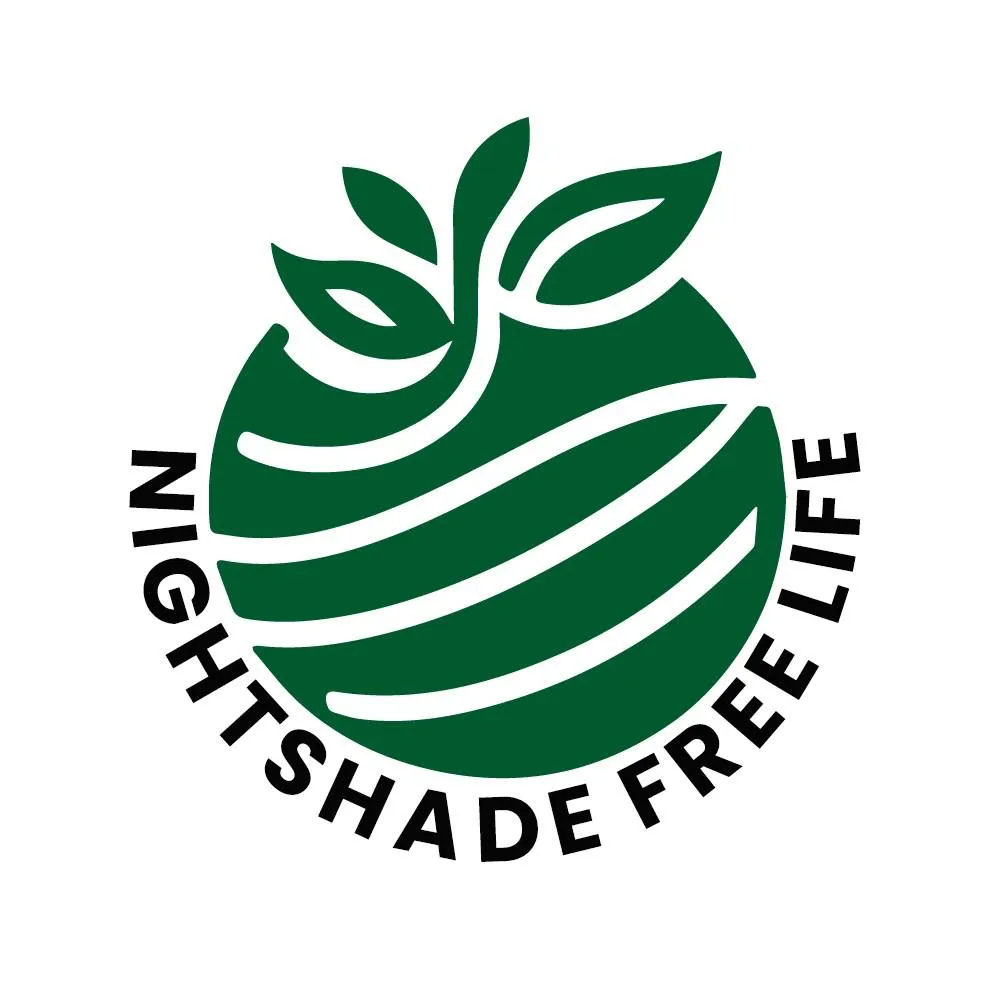Travelling with
Dietary Restrictions
Travel can be a joy, but dietary restrictions can cause stress, anxiety and even illness
While travel can bring new experiences, fun and connection, it means being away from familiar foods and a loss of control over your cooking and eating options. There's more risk of eating something that triggers symptoms and it can be downright stressful.
This guide will help with some tips on travelling while avoiding nightshades (and other ingredients if needed). With a bit of planning, you can enjoy travel and avoid the choice of starving or risking illness.

1. Do Your Research
Whether you're travelling down the road or across the globe, it's worth doing some research before you leave.
As a starting point, what will your circumstances be? If you're travelling for work or to an event, there may be a schedule with limited options for where and what you eat. If there's a restaurant already booked or if you'll have a window of time to find your own meals, check out the options within those limits. Most food service businesses have websites, so you can check menus and choose in advance where you want to go.
If your destination has a different culture, start by learning about the traditional ingredients in the local cuisine. Are tomatoes or peppers a staple in the area? Are there many dishes made with potatoes, eggplants, or other nightshade vegetables? Which dishes are safe and which are likely to be problems? Knowing this in advance will allow you to make informed decisions and avoid foods that could trigger an allergic reaction or sensitivity.
You can often find detailed information about the availability of safe foods or which dishes you should avoid. Take advantage
of travel forums, food allergy communities, and social media groups where people share experiences about food and travel. Asking in online communities (like the Nightshade-free Life Facebook page) can help with advice from fellow travellers.
2. Plan Ahead and Pack Your Essentials
Packing for a trip with dietary restrictions requires a bit more forethought, but it can make all the difference during your travels. The
last thing you want is to be stuck in an unfamiliar place with nothing safe to eat. Here's what to pack to ensure you have access to safe meals no matter where you are:
Allergen Alert Cards: Especially if you're travelling to a country where the language is unfamiliar, it's a good idea to carry allergen alert
cards. These cards can clearly explain your dietary restrictions in the local language, reducing the risk of miscommunication at restaurants. You can print cards that explain your dietary needs, such as "I cannot eat tomatoes, potatoes, peppers, or chillies" or "I have a nightshade allergy." Check out my cards in English, or contact me if you need a translated version.
Emergency Snacks: Always bring snacks you can rely on in case you find yourself in a situation where finding food is difficult. This
could include things like granola bars, nuts, rice crackers, or nut butter. My favourite is cup noodles with instant miso soup. I throw out the flavour pack from the noodles (they usually contain spices) and make the soup with the miso instead - I rarely have access to a stove or even a microwave, but hot water is easy to find.
Keep in mind that some countries have restrictions on bringing in food. If you're travelling internationally, check in advance.
Safe Seasonings and Condiments: yes, I travel with my own salt and seasoning blend. Totally normal!
If you avoid nightshades, pack a small container of your favourite nightshade-free spices or seasoning blends. Having these on hand ensures you can flavour your meals, even if restaurants don’t offer the same variety of safe seasonings.
Portable Meals: If you're planning long days of sightseeing, bringing along ready-to-eat meals can save you time and hassle. Snacks like trail mix, crackers and muesli bars can tide you over if you can't get a safe meal while you're out and about.
3. Communication is Key
One of the most critical aspects of travelling internationally with dietary restrictions is ensuring you can communicate your needs clearly. While it may not always be easy, making sure restaurant staff or food vendors understand your dietary requirements can help you avoid potentially dangerous situations.
Learn basic phrases in the local language to explain your restrictions. Even if you don’t speak the language fluently, just knowing how
to say, “I cannot eat tomatoes, potatoes, peppers, or chillies” in the local tongue can go a long way in ensuring you’re understood. If you’re unsure of the correct phrase, use a translation app to help.
If you're going to a place with a completely different alphabet (like Japan, China, or Russia), having these phrases written down can
be very useful. You can either print the translations from a reliable source or use a translation app to create a card that you can show to restaurant staff.
If you know where you'll be eating or you've identified some good options in your research, consider emailing the restaurant before you leave. It can be far easier to sort out what you can eat when everyone has more time to think it through, rather than turning up on the spot during a busy service and trying to get your needs across.
4. Stay Flexible and Be Prepared to Modify Your Meals
When dining out, even after doing all your research and preparation, there may still be situations where you need to modify a dish to
meet your dietary needs. Don’t hesitate to ask for substitutions or to have ingredients removed. Many restaurants, especially in places with more global culinary influences, are willing to accommodate special dietary requests when they can.
For instance, if a dish you like contains a nightshade-based sauce, ask if it can be prepared with a different base. It can help to look for other sauces or ingredients listed as part of other dishes on the menu - for example, a pasta dish might mention a pesto sauce that would work well as a base for the pizza you'd like to order.
Being flexible and understanding is key. While it might not always be possible to get the exact dish you want, you can often find creative solutions to make a meal safe. And don’t be afraid to speak up if you feel uncomfortable or unsure about a meal’s preparation.
Be aware, though, that sometimes the preparation of a dish makes it impossible to modify. Curry pastes and bases are made well in advance and can't be changed, as an example. Meat that's been marinated in preparation for the day can't be un-marinated on the spot. Be reasonable, flexible and polite, and you're more likely to be accommodated.
6. Plan for Emergencies
While planning for safety and taking precautions is important, it’s always best to prepare for the unexpected. Make sure you have a
few emergency options for meals or snacks, just in case things don’t go according to plan.
If your symptoms are very serious, keep a list of local hospitals or clinics in case of an allergic reaction or other health issue. Always carry any medication you might need for emergency reactions, and make sure you’re familiar with local emergency numbers.
In cases where your destination isn't English-speaking, printing cards in the local language with your personal, medical, contact and accommodation information is a good idea. Hopefully you'll never need them, but if things go wrong then you won't want to rely on a translation app to explain who you are and what's happened.
Having a plan for travel insurance that covers medical issues is another great step to take before heading out on your trip. Travel
insurance is relatively inexpensive and can provide peace of mind, knowing you're covered in case of an emergency.
Keep a Positive Mindset and Enjoy the Journey
Travelling with dietary restrictions may require extra effort, but it’s important to remember that it’s completely manageable. With
the right preparation, research, and communication, you can still enjoy the rich variety of global cuisines and have memorable food experiences.
Maintaining a positive mindset and being open to new meals and experiences will not only make your travels more enjoyable but also give you the confidence to explore new places and flavours. Remember, the world is full of delicious, safe meals, and you’re just a few steps away from finding them!
© Nightshade Free Life
